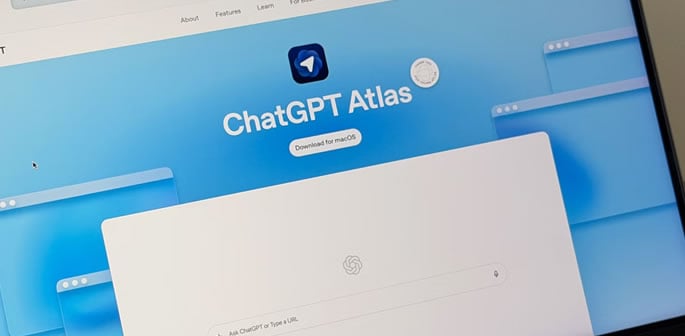"early adopters will kick the tyres on the new OpenAI browser."
OpenAI has unveiled a new artificial intelligence-powered web browser called ChatGPT Atlas, going up against giants like Google Chrome.
Atlas marks a major shift in how people browse the web. It removes the traditional address bar, a defining feature in most browsers, and integrates AI directly into the experience.
OpenAI boss Sam Altman said it was “built around ChatGPT” as the company launched the browser on Apple’s MacOS on October 21, 2025.
The arrival of Atlas signals OpenAI’s next step in monetising its investment in artificial intelligence while deepening engagement with its expanding user base.
OpenAI said Atlas includes a paid agent mode that allows ChatGPT to conduct searches autonomously for users.
The feature aims to make “improvements that make it faster and more useful by working with your browsing context.”
However, this agent mode will be available only to paying ChatGPT subscribers through OpenAI’s Plus and Pro plans.
The launch follows a series of moves by OpenAI to draw more users into its online ecosystem.
The company has formed partnerships with major platforms such as Etsy, Shopify, Expedia and Booking.com to integrate AI assistance into e-commerce and travel services.
During OpenAI’s DevDay event earlier in October, Altman announced that ChatGPT had reached 800 million weekly active users, up from 400 million in February, according to research firm Demandsage.
Pat Moorhead, CEO and chief analyst at Moor Insights & Strategy, said:
“I believe that early adopters will kick the tyres on the new OpenAI browser.”
But he added that mainstream users might not switch from their existing browsers so easily.
Moorhead said he was sceptical that Atlas could pose a serious challenge to Chrome or Microsoft Edge “as more mainstream, beginners, and corporate users will just wait for their favourite browsers to offer this capability.”
He noted that “Microsoft Edge already provides many of these capabilities today”.
The timing of OpenAI’s browser launch comes amid growing scrutiny of Google’s control over online search. A year ago, Google was declared an illegal monopolist in that space.
Although the US Justice Department sought to separate Chrome from Google’s search business, the court did not order such a move.
User behaviour is also beginning to shift.
Research firm Datos reported that as of July, 5.99% of desktop searches were made through large language models such as ChatGPT, more than double the share from a year earlier.
Google has also prioritised AI-generated results in its search responses over traditional links, as it strengthens its focus on artificial intelligence.
Who can use it and when
ChatGPT Atlas is currently available for Mac users worldwide. Even those using the free version of ChatGPT can access the browser.
Subscribers to OpenAI’s Plus and Pro plans will have exclusive access to the agent mode.
OpenAI has not yet confirmed when Atlas will launch on Windows, iOS or Android devices.






























































